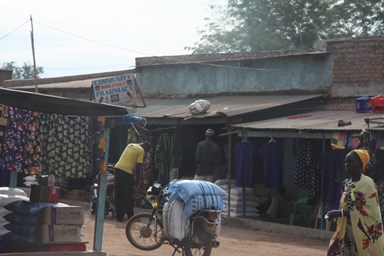Rumbek business communities feel economic pinch
May 16, 2016 (RUMBEK) – Women engaged in business Rumbek, the capital of South Sudan’s Western lakes state are grappling with economic hardships, worsened by the dollar crisis that hit the country after months of a bloody civil war.

Debora Yom, who operates from Rumbek market, has sold the locally-produced alcohol for more than five years now.
To her, the bad road conditions are a setback to business.
“I have worked for five years in making local alcohol, but business was affected by local market supply from neighbouring countries. We get sorghum from Juba and Juba is getting its supply from Kenya or Uganda,” says Yom.
“The bad road is also affecting business community in Rumbek, issues of unknown gunman on the road have scared everyone, affecting local market supply,” she adds.
Authorities in Western Lake state say cases of revenge killings are still rampant in the area, but security has improved lately and few incidences have been recorded.
The state minister for local government and law enforcement agency, Benjamin Makuer said the restoration of peace would eventually normalize business in Rumbek.
He urged Western Lakes state residents to keep the peace and fully engage in agriculture as sources of livelihoods.
“There is security available to protect businesses. We have no problem as longer people are doing business that does not cause insecurity,” Makuer told Sudan Tribune Monday.
Mary Achol, another market vendor, praised the state government for quelling down insecurity levels in the town.
“At least there is reason for some women to smile, it is only the level of insecurity within town that reduced, no rape or looting, let government also try its level best to bring food and water to us,” said Achol.
Johnson Majak Makur, a bicycle repairer in Rumbek town, admitted that insecurity had badly hit business operation.
“Getting spare parts for bicycles has become difficult and nobody is buying bicycles as before because they have become easy targets for revenge killers,” he said.
Each bicycle, Makur said, used to be sold at about SSP 1,200 which is not the same now.
(ST)
